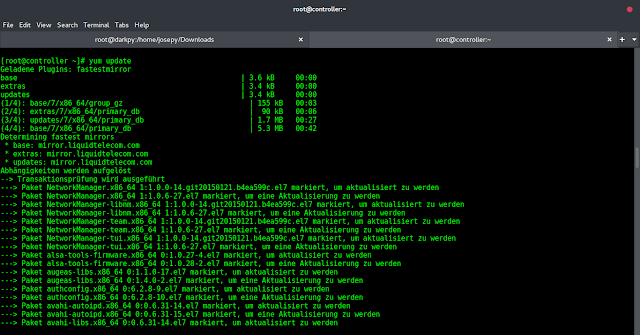Given an array where elements are first continuously increasing and after that its continuously decreasing unit first number is reached again. We want to add the elements of array. We may assume that there is no overflow in sum.
Examples:
Input : arr[] = {5, 6, 7, 6, 5}.
Output : 29
Input : arr[] = {10, 11, 12, 13, 12, 11, 10}
Output : 79
A simple solution is to traverse through n and add the elements of array.
Implementation:
C++
#include <iostream>
using namespace std;
int arraySum(int arr[], int n)
{
int sum = 0;
for (int i = 0; i < n; i++)
sum = sum + arr[i];
return sum;
}
int main()
{
int arr[] = {10, 11, 12, 13, 12, 11, 10};
int n = sizeof(arr) / sizeof(arr[0]);
cout << arraySum(arr, n);
return 0;
}
|
Java
class GFG {
public static int arraySum(int arr[], int n)
{
int sum = 0;
for (int i = 0; i < n; i++)
sum = sum + arr[i];
return sum;
}
public static void main(String[] args)
{
int arr[] = {10, 11, 12, 13, 12, 11, 10};
int n = arr.length;
System.out.print(arraySum(arr, n));
}
}
|
Python3
def arraySum( arr, n):
_sum = 0
for i in range(n):
_sum = _sum + arr[i]
return _sum
arr = [10, 11, 12, 13, 12, 11, 10]
n = len(arr)
print(arraySum(arr, n))
|
C#
using System;
class GFG {
public static int arraySum(int []arr, int n)
{
int sum = 0;
for (int i = 0; i < n; i++)
sum = sum + arr[i];
return sum;
}
public static void Main()
{
int []arr = {10, 11, 12, 13, 12, 11, 10};
int n = arr.Length;
Console.WriteLine(arraySum(arr, n));
}
}
|
PHP
<?php
function arraySum($arr, $n)
{
$sum = 0;
for ($i = 0; $i < $n; $i++)
$sum = $sum + $arr[$i];
return $sum;
}
$arr = array(10, 11, 12, 13,
12, 11, 10);
$n = sizeof($arr);
echo(arraySum($arr, $n));
?>
|
Javascript
<script>
function arraySum(arr, n)
{
let sum = 0;
for (let i = 0; i < n; i++)
sum = sum + arr[i];
return sum;
}
let arr = [10, 11, 12, 13,
12, 11, 10];
let n = arr.length;
document.write(arraySum(arr, n));
</script>
|
Time Complexity : O(n)
Space Complexity : O(1)
An efficient solution is to apply below formula.
sum = (arr[0] - 1)*n + ?n/2?2
How does it work?
If we take a closer look, we can notice that the
sum can be written as.
(arr[0] - 1)*n + (1 + 2 + .. x + (x -1) + (x-2) + ..1)
Let us understand above result with example {10, 11,
12, 13, 12, 11, 10}. If we subtract 9 (arr[0]-1) from
this array, we get {1, 2, 3, 2, 1}.
Where x = ceil(n/2) [Half of array size]
As we know that 1 + 2 + 3 + . . . + x = x * (x + 1)/2.
And we have given
= 1 + 2 + 3 + . . . + x + (x - 1) + . . . + 3 + 2 + 1
= (1 + 2 + 3 + . . . + x) + ((x - 1) + . . . + 3 + 2 + 1)
= (x * (x + 1))/2 + ((x - 1) * x)/2
= (x2 + x)/2 + (n2 - x)/2
= (2 * x2)/2
= x2
Implementation:
C++
#include <iostream>
using namespace std;
int arraySum(int arr[], int n)
{
int x = (n+1)/2;
return (arr[0] - 1)*n + x*x;
}
int main()
{
int arr[] = {10, 11, 12, 13, 12, 11, 10};
int n = sizeof(arr) / sizeof(arr[0]);
cout << arraySum(arr, n);
return 0;
}
|
Java
class GFG {
public static int arraySum(int arr[], int n)
{
int x = (n + 1) / 2;
return (arr[0] - 1) * n + x * x;
}
public static void main(String[] args)
{
int arr[] = {10, 11, 12, 13, 12, 11, 10};
int n = arr.length;
System.out.print(arraySum(arr, n));
}
}
|
Python3
def arraySum( arr, n):
x = (n + 1)/2
return (arr[0] - 1)*n + x * x
arr = [10, 11, 12, 13, 12, 11, 10]
n = len(arr)
print(arraySum(arr, n))
|
C#
using System;
class GFG {
public static int arraySum(int []arr, int n)
{
int x = (n + 1) / 2;
return (arr[0] - 1) * n + x * x;
}
public static void Main()
{
int []arr = {10, 11, 12, 13, 12, 11, 10};
int n = arr.Length;
Console.WriteLine(arraySum(arr, n));
}
}
|
PHP
<?php
function arraySum($arr, $n)
{
$x = ($n + 1) / 2;
return ($arr[0] - 1) *
$n + $x * $x;
}
$arr = array(10, 11, 12, 13,
12, 11, 10);
$n = sizeof($arr);
echo(arraySum($arr, $n));
?>
|
Javascript
function arraySum(arr, n)
{
let x = (n + 1) / 2;
return (arr[0] - 1) *
n + x * x;
}
let arr = [10, 11, 12, 13,
12, 11, 10];
let n = arr.length;
document.write(arraySum(arr, n));
|
Time Complexity: O(1)
Auxiliary Space: O(1)
If you like neveropen and would like to contribute, you can also write an article using write.geeksforgeeks.org or mail your article to review-team@geeksforgeeks.org. See your article appearing on the neveropen main page and help other Geeks.
Feeling lost in the world of random DSA topics, wasting time without progress? It’s time for a change! Join our DSA course, where we’ll guide you on an exciting journey to master DSA efficiently and on schedule.
Ready to dive in? Explore our Free Demo Content and join our DSA course, trusted by over 100,000 neveropen!

